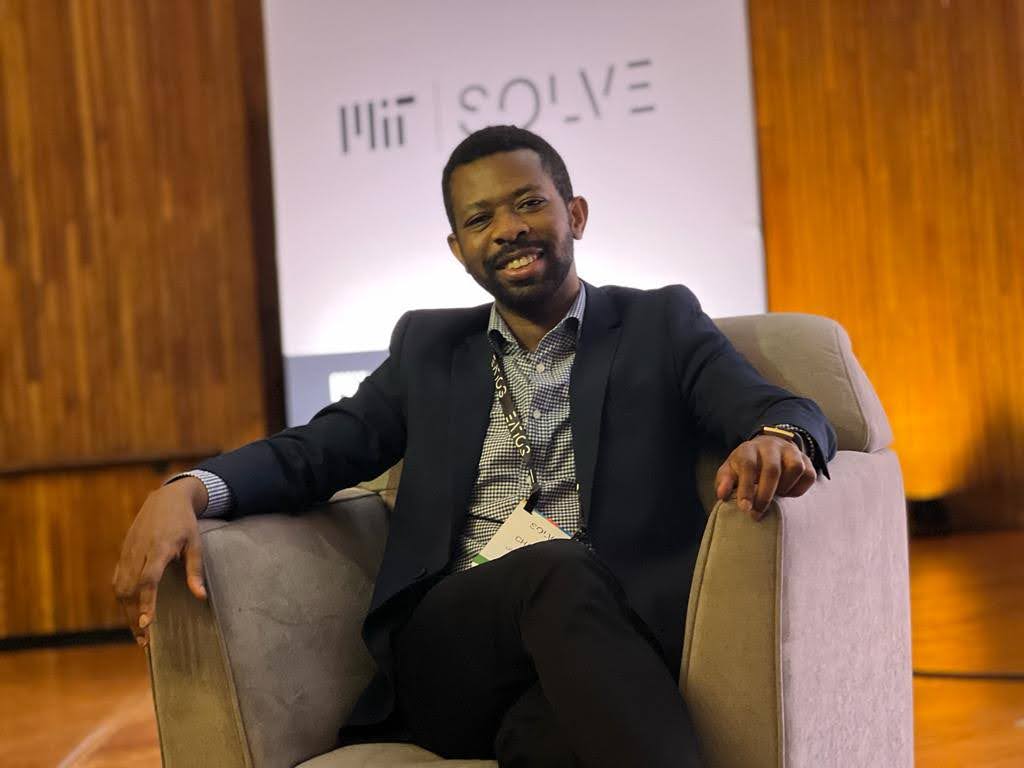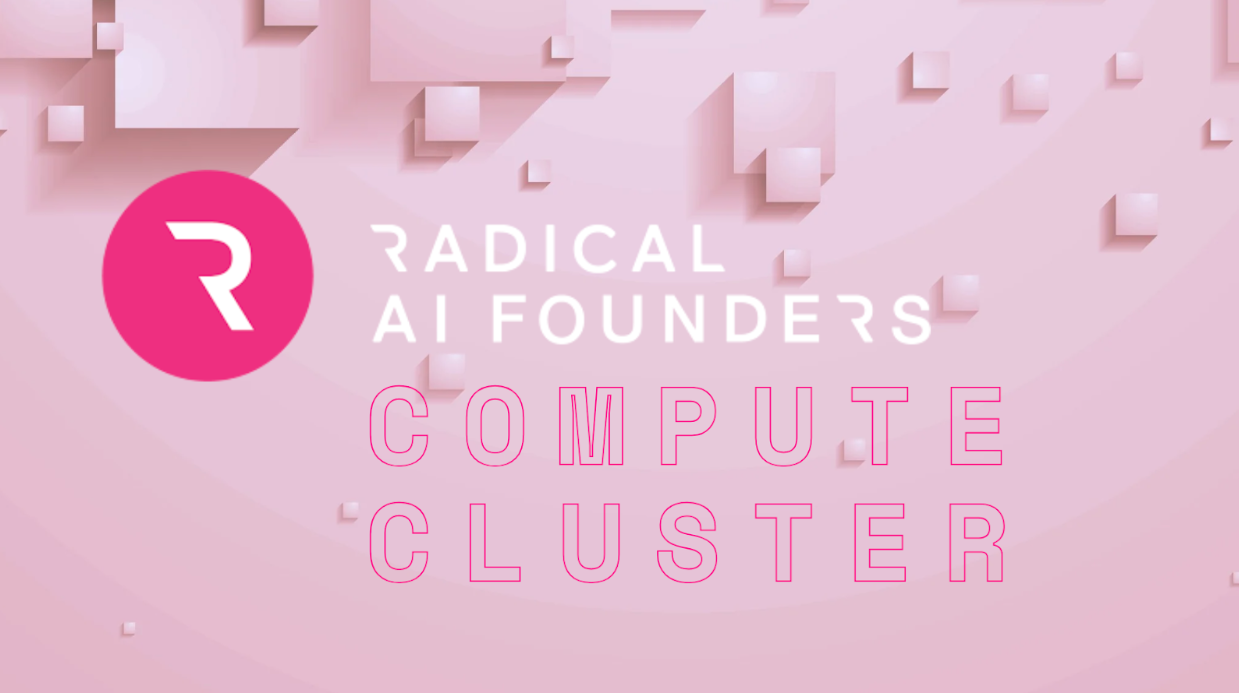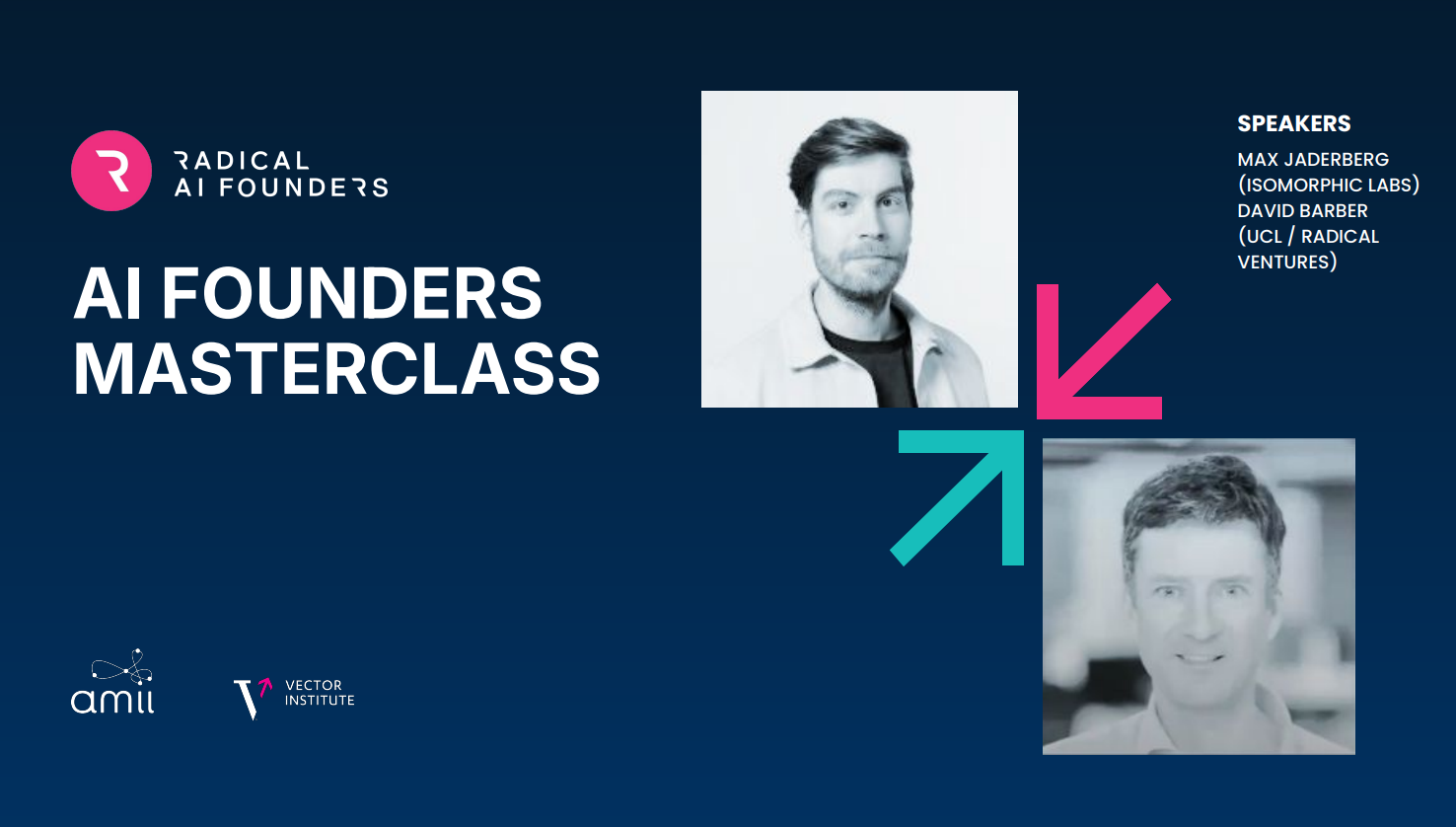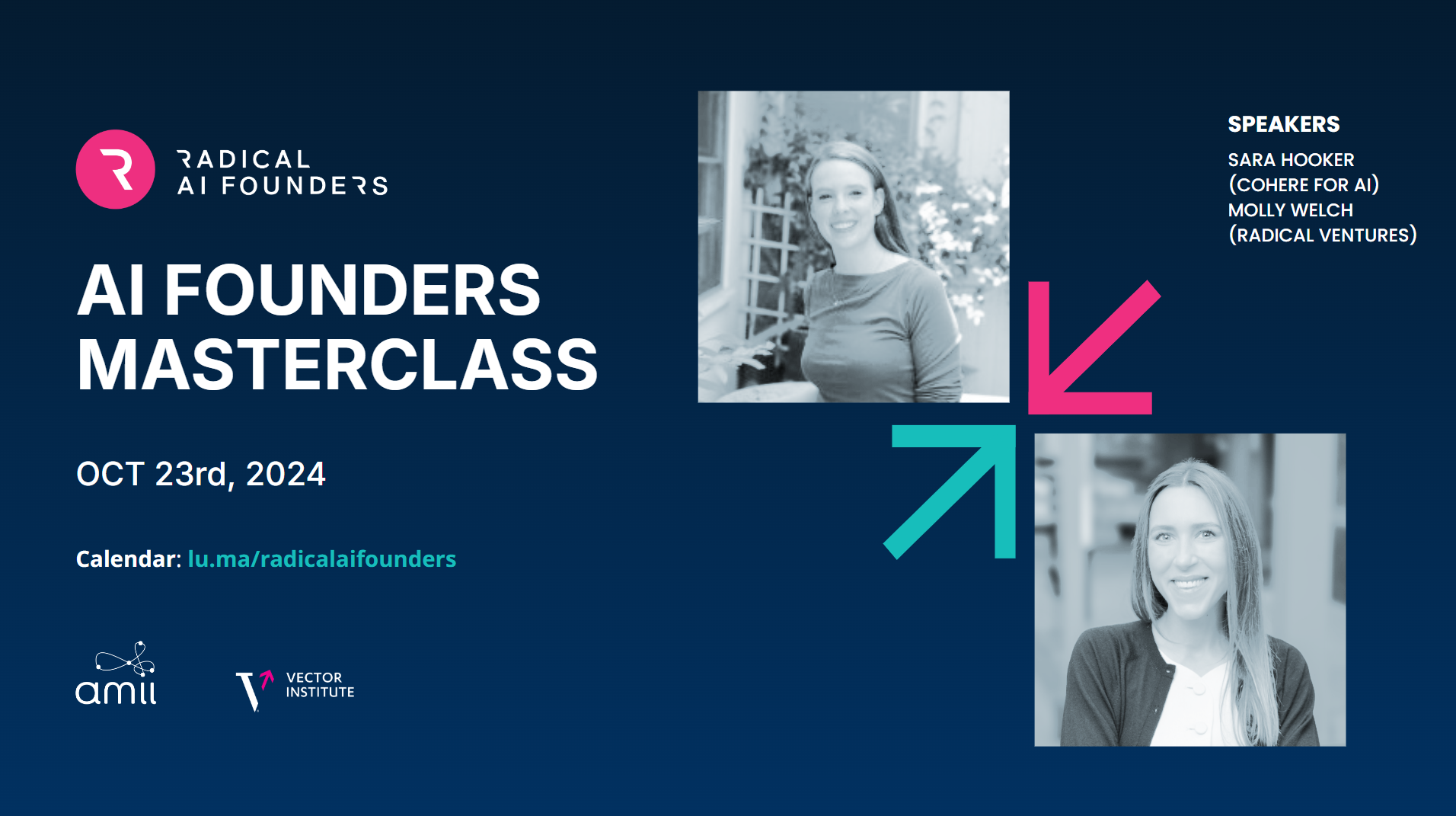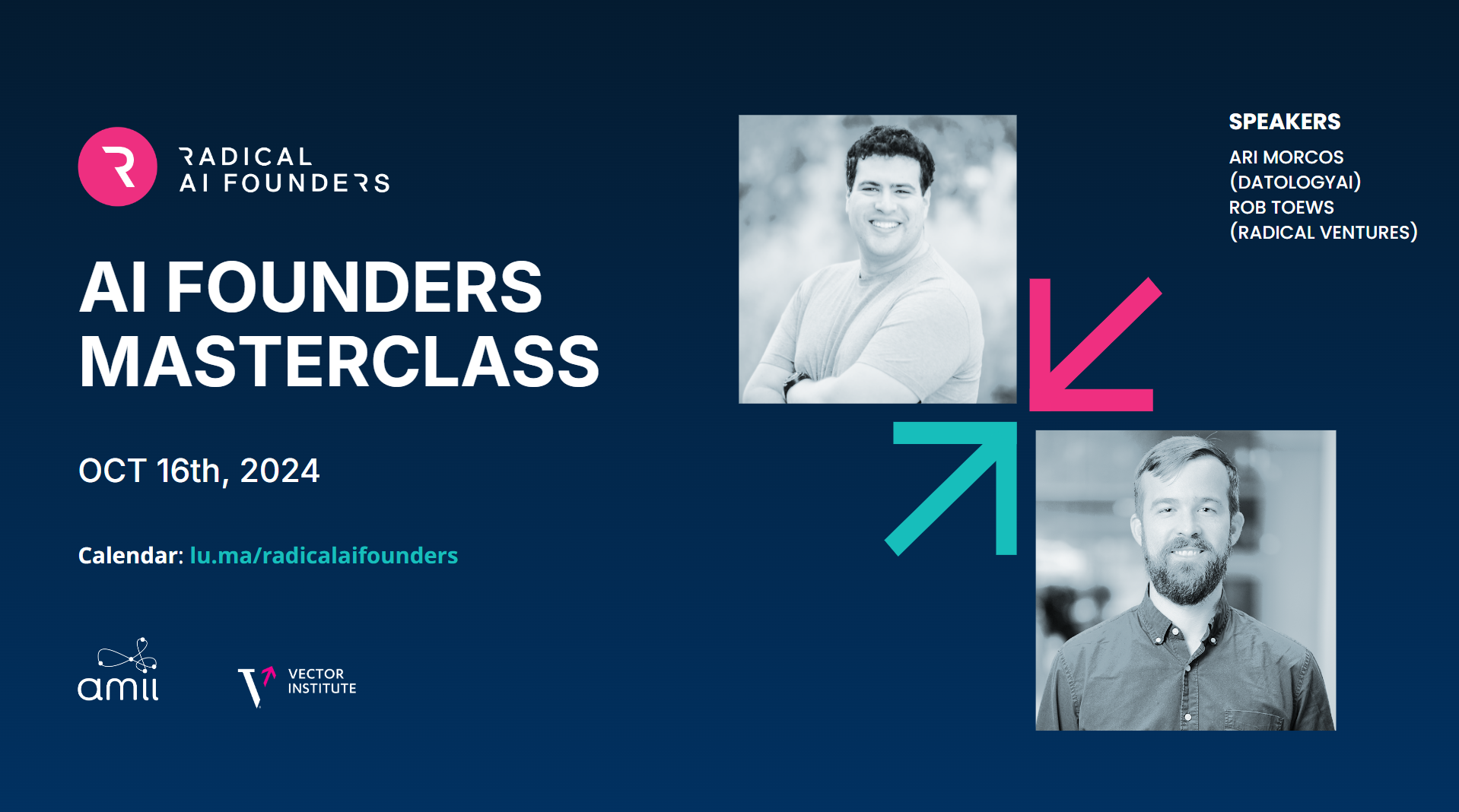Making the transition from AI researcher to entrepreneur has proven to be one of the most professionally rewarding journeys experienced by many of Radical’s founders. But for every founder making that leap from academia to the startup world, there will undoubtedly be plenty of uncertainties to overcome and tough lessons learned.
This week Charles Onu, the founder of Radical portfolio company Ubenwa, shares some of the most frequent questions he gets from AI PhD students at Mila. Before founding his company which uses AI to diagnose baby cry sounds for parents and clinicians, Charles was a researcher at Mila under Doina Precup, a renowned AI scientist who now leads Google DeepMind’s Montreal lab.
How do I find a good idea to work on?
You need a problem that is real and that you care about. One good way to find such a problem is to immerse yourself in that field. In my case, I focused my ML research in pediatric care and on clinical collaborations there which led me to Ubenwa.
I have an idea. How do I even start?
The first thing on your mind should be: how do I test as quickly as possible that my idea can be a business? You need to make an MVP (minimum viable product). In practice, it doesn’t have to be a product, but must answer that question.
After minimal viable product (MVP) what next?
There’s much to learn, in addition to the mindset shift. I recommend joining a good incubator program. You will be surrounded by coaches, founders and resources to help you sort out the business preliminaries. In Montreal, two great programs for AI founders are NextAI and CDL. High quality VCs also tend to have great support for their founders. So if you feel you have something special, you could go straight to seeking capital from firms like Radical Ventures.
Should I be the CEO or CTO?
It should come down to: where will you be most useful to the company? Keep in mind that CEO is a generalist role, in contrast to the specialist mindset that likely brought you to a PhD in the first place.
Should I stay in Canada or incorporate in the US?
This should be a business decision. There was a time when US investors required you to have a US-domiciled company. That has changed significantly and investors freely write cheques across both sides of the border. If you stay as a Canadian corp you also get to benefit from significant non-dilutive funding opportunities. For example IRAP, provincial programs, SR&ED tax credits, and newly announced AI compute subsidies. Just note that these alone will not make you a successful company.
Should I talk about my idea?
Please do. The risk of someone stealing your idea is dramatically lower than the benefits. Talking about your idea is an opportunity to dialogue, brainstorm and refine it. Ideas are cheap. It’s execution that makes a great company!
Can I run my company while doing my PhD?
From personal experience I’d say avoid this if you can. Both are intense endeavors that require deep thinking 24/7 and commitment over many years. There will be a cost. But if you’re willing to accept the cost, go for it!
AI News This Week
-
Three reasons robots are about to become way more useful (MIT Technology Review)
There is a well-known observation among roboticists called the Moravec’s paradox: what is hard for humans is easy for machines, and what is easy for humans is hard for machines. Thanks to AI, this is now changing. Robots are starting to become capable of doing tasks such as folding laundry, cooking and unloading shopping baskets, which not too long ago were seen as almost impossible tasks. Covariant, a Radical Ventures robotics startup has built a multimodal AI foundation model for robotics called RFM-1 that allows the robot to both understand instructions and perform those tasks.
-
Watch: Is Ontario at the forefront of AI? (The Agenda)
How did Ontario become an AI hub and how can it remain competitive in the years ahead? Radical Ventures Investor Sanjana Basu joined The Agenda with Steve Paikin as a guest to share how she became captivated by AI’s potential and why she chose to move to Toronto and join Radical Ventures to invest in the transformative power of AI.
-
Artificial Intelligence offers an opportunity to improve EV Batteries (Bloomberg)
Radical Ventures’ portfolio company Chemix has developed an AI-driven platform that accelerates battery development for electric vehicles (EVs), enhancing their efficiency and longevity. While generative AI has impacted various sectors, its use in battery tech has been limited due to data challenges. To overcome this, Chemix built its own battery lab to generate targeted data, achieving substantial results in less than three years. They tested 10,000 commercial-format cells, screened over 4,000 electrolyte formulations, examined more than 2,000 electrode pairs, and amassed 4.5 million cycles of data.
-
How AI is revolutionizing marine conservation (Smithsonian)
Artificial intelligence is being used to revolutionize the field of marine sciences, particularly in combating illegal fishing activities. After identifying the rampant issue of untracked illegal fishing that depletes global fish stocks, Dyhia Belhabib developed the Spyglass database and introduced the ADA algorithm, an AI tool that aggregates data on the criminal histories of fishing vessels. This technology enables enhanced policing of marine crimes by providing a comprehensive view of ship movements and potential illegal activities in real-time. Moreover, the integration of AI with real-time data collection, such as AIS signals, has allowed for the development of risk assessment tools that predict environmental crimes at sea, empowering enforcement agencies with the information needed to act swiftly and effectively.
-
OSWORLD: Benchmarking multimodal agents for open-ended tasks in real computer environments (University of Hong Kong/CMU/Salesforce Research/University of Waterloo)
Researchers have developed OSWorld, a challenging benchmark for testing how well AI systems can operate computers to do a vast range of tasks that require systems to carry out multiple distinct steps. This included tasks operating eight widely used software applications from Chrome for web browsing to LibreOffice (Calc, Writer, and Impress) for handling spreadsheets, documents, and presentations respectively. This benchmark represents a significant shift towards “always-on” AI systems that handle routine to complex computer operations, potentially replacing traditional interactions with graphical user interfaces.
Radical Reads is edited by Ebin Tomy.

